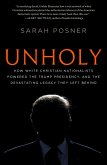Why has nationalism come roaring back?
Trump in America, Johnson in the U.K., anti-EU parties in Italy, Germany, France, the Netherlands, Austria, Poland, and Hungary, and nativist or authoritarian leaders in Turkey, Russia, India, and ChinaWhy has nationalism suddenly returned with a vengeance? Is the world headed back to the fractious conflicts between nations that led to world wars and depression in the early 20th Century?
Based on travels in America, Europe, and Asia, veteran political analyst John B. Judis found that almost all people share nationalist sentiments that can be the basis of vibrant democracies as well as repressive dictatorships. Today's outbreak of toxic us vs. them nationalism is an extreme reaction to utopian cosmopolitanism, which advocates open borders, free trade, rampant outsourcing, and has branded nationalist sentiments as bigotry. Can a new international order be created that doesn't dismiss what is constructive about nationalism? As he does for populism in The Populist Explosion and for socialism in The Socialist Awakening, Judis looks at nationalism from its modern origins in the 1800s to today to find answers.
Essential reading. E.J. Dionne Jr., Washington Post
Trump in America, Johnson in the U.K., anti-EU parties in Italy, Germany, France, the Netherlands, Austria, Poland, and Hungary, and nativist or authoritarian leaders in Turkey, Russia, India, and ChinaWhy has nationalism suddenly returned with a vengeance? Is the world headed back to the fractious conflicts between nations that led to world wars and depression in the early 20th Century?
Based on travels in America, Europe, and Asia, veteran political analyst John B. Judis found that almost all people share nationalist sentiments that can be the basis of vibrant democracies as well as repressive dictatorships. Today's outbreak of toxic us vs. them nationalism is an extreme reaction to utopian cosmopolitanism, which advocates open borders, free trade, rampant outsourcing, and has branded nationalist sentiments as bigotry. Can a new international order be created that doesn't dismiss what is constructive about nationalism? As he does for populism in The Populist Explosion and for socialism in The Socialist Awakening, Judis looks at nationalism from its modern origins in the 1800s to today to find answers.
Essential reading. E.J. Dionne Jr., Washington Post
Dieser Download kann aus rechtlichen Gründen nur mit Rechnungsadresse in A, D ausgeliefert werden.
"Excellent and compact.... A person of the left, Judis specializes in speaking truth to liberals, something he also did in his earlier The Populist Explosion. He thinks it's important for progressives to understand why so many are drawn to Trump and the far right in Europe." -E.J. Dionne, The Washington Post
"John B. Judis is the rare left-of-center journalist who takes our populist-nationalist moment seriously. Rather than dismiss the leaders and constituencies of the American and European movements as mere xenophobes, he offers an empathetic balls-and-strikes analysis of the socioeconomic factors that made-and continue to make-such campaigns viable." -The American Conservative
"Concise and indispensable." -Vanity Fair
"John B. Judis does not see a death-match between imperial liberalism on the one hand and nationalism on the other. His book argues that elites have overreached, both in the U.S. and in Europe, in advocating large-scale immigration and trade deals and foreign interventions. As a result, Mr. Judis-a former New Republic editor who has long supported progressive and pro-labor economic policies-calls for a synthesis between liberalism and nationalism." -The Wall Street Journal
"John B. Judis' new book offers a timely reminder that there is such a thing as a nationalist left, and the author himself is a part of it." -The National Interest
"Judis's contrast between 'globalism' and 'internationalism' is a valuable distinction for the left, and rejecting the former is necessary for the survival of the latter. Progressives will have to offer an 'alternative globalism' that can address the extreme inequities of the current system while defending its very real achievements. Nationalism will be the reactionary route of the 21st century, and in the United Kingdom we are already seeing just how chaotic and disastrous this path can be." -Conor Lynch, The Week
"The longtime political journalist limns the rise of Trumpian nationalism in the face of a bewilderingly global world." -Kirkus Reviews
"John B. Judis is the rare left-of-center journalist who takes our populist-nationalist moment seriously. Rather than dismiss the leaders and constituencies of the American and European movements as mere xenophobes, he offers an empathetic balls-and-strikes analysis of the socioeconomic factors that made-and continue to make-such campaigns viable." -The American Conservative
"Concise and indispensable." -Vanity Fair
"John B. Judis does not see a death-match between imperial liberalism on the one hand and nationalism on the other. His book argues that elites have overreached, both in the U.S. and in Europe, in advocating large-scale immigration and trade deals and foreign interventions. As a result, Mr. Judis-a former New Republic editor who has long supported progressive and pro-labor economic policies-calls for a synthesis between liberalism and nationalism." -The Wall Street Journal
"John B. Judis' new book offers a timely reminder that there is such a thing as a nationalist left, and the author himself is a part of it." -The National Interest
"Judis's contrast between 'globalism' and 'internationalism' is a valuable distinction for the left, and rejecting the former is necessary for the survival of the latter. Progressives will have to offer an 'alternative globalism' that can address the extreme inequities of the current system while defending its very real achievements. Nationalism will be the reactionary route of the 21st century, and in the United Kingdom we are already seeing just how chaotic and disastrous this path can be." -Conor Lynch, The Week
"The longtime political journalist limns the rise of Trumpian nationalism in the face of a bewilderingly global world." -Kirkus Reviews









